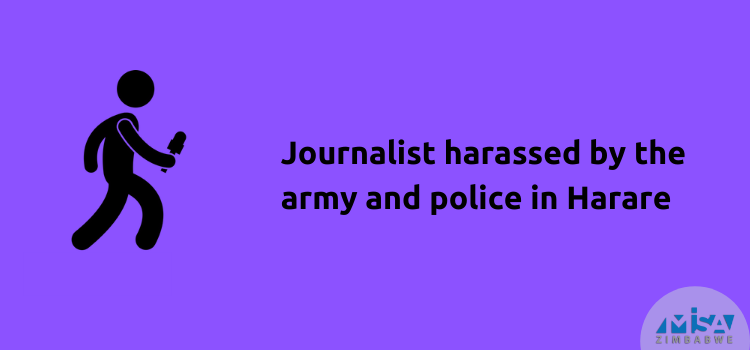Mary Taruvinga journalist with NewZimbabwe.com was this morning on 10 April 2020 reportedly harassed by members of the army and police officers while on her way to work in Harare’s central business district.
Taruvinga was asked by two army officers and one police officer where she was going. She told them that she is a journalist and was on her way to her workplace at Causeway Building and duly produced her accreditation card.
The officers reportedly insisted that she was not allowed to be in town as part of the COVID-19 lockdown enforcement measures. She was made to wait by the roadside for more than 30 minutes before the police officers allowed her to continue with her journey to work.
In the meantime, she was given conflicting instructions on which direction to take with some of the officers telling her to go in one direction while others insisted that she should follow their instructions. Taruvinga found herself having to walk up and down the street at the command of the officers.
MISA Zimbabwe position
MISA Zimbabwe is concerned with the manner with which security personnel are treating journalists, particularly during this lockdown period. The several cases involving the harassment, arrest and assault of journalists that have been recorded are uncalled for and unjustified.
These actions directly contradict the statement by the Zimbabwe Republic Police on its Twitter account on 30 March 2020 in which the police pledged its commitment to promote cordial relations with media practitioners.
MISA Zimbabwe calls on the Zimbabwe Media Commission to conduct investigations and inquiries into these media freedom violations which also impact on the citizens’ right to access to information.
As highlighted in our recent statement, MISA Zimbabwe reiterates that the enemy we are fighting at this critical time is COVID-19 and not the media. The media should thus be allowed to conduct its professional duties without hindrance as provided for in the Constitution.
Update (11 April 2020): It has come to our attention that, journalist Alois Vinga, was also stopped by three police officers in the CBD & marched back to where he was coming from. This despite producing his accreditation card.
//End
SOS journalists hotline
If you are injured, detained or arrested ín the line of duty, call our 24/7 SOS journalist hotline on 0784 437 338 to access legal and/or medical assistance.
Don’t forget to have the number saved in your phone for emergencies!
Find out more about the hotline here.









